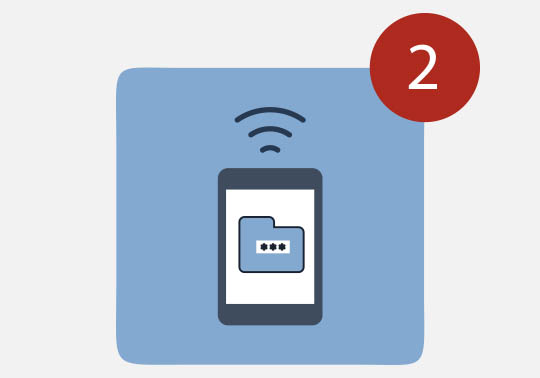
Connecting to a public wifi network can put at risk the information stored on your devices and therefore make it vulnerable to cybercriminals attacks. It is possible that your information is exposed and that data such as your password, username and bank information are stolen.
Here are 10 aspects that you should keep in mind when connecting to a public wifi network:
1. Do not download strange apps:
To connect to the public wifi zones you do not need to download an external application or make any configuration on your cell phone. You should only activate the connection of your device.
2. Verify the name of the Wi-Fi network and connect to VPN from UV:
Before making use of a Wi-Fi network you must verify if the name is correctly written. On some occasions, cybercriminals create false networks and give them reliable names such as a mall or a restaurant with the goal that you connect and attackers have access to all your information.
Whenever you are going to work from your computer or mobile device with UV data (e-mail, files, etc.), remember to make a VPN connection with the UV.
The virtual private network (VPN) of the University of Valencia, extends, through a process of encapsulation and in some cases encryption, from data packets to different remote points, through the use of public transport infrastructure. The data packets of the private network travel through a tunnel defined in the public network to which we have connected. In the case of remote access, the VPN allows the user to access our corporate network, assigning to his computer or remote mobile device the addresses and privileges of this, even if the connection was made through a public Internet access. At times, it may be interesting that the communication traveling through the tunnel established in the public network is encrypted to allow greater confidentiality.
More information:https://www.uv.es/uvweb/servei-informatica/ca/serveis/generals/xarxa-comunicacions/xarxa-privada-virtual-vpn-/es-vpn-1285903202284.html
3. Always use https pages:
The HTTPS (secure hypertext transfer protocol) allows the data to travel safely. Make sure that at the beginning of each link you find the acronyms: "https: //".
4. Avoid scrolling where you got access:
Sometimes moving from one place to another can affect the connection to the public network, either because the network does not have a great coverage or that the routers that provide Internet access are very separate.
5. Try not to make payments:
Public wifi networks are not recommended for any type of payment and / or bank movements. Use your data or secure Wi-Fi networks such as the one in the house. In the same way, it is advisable not to enter pages where personal information or access data is requested.
6. Make a short navigation:
So that your network does not begin to fail, make short or interrupted browses so that the speed of the connection is faster.
7. Disable file synchronization:
On many occasions our devices perform activities that do not require our participation, such as making backup copies of their files in the cloud automatically. It is advisable to disable these functions when we are not connected to a secure network.
8. Make sure you have the latest update:
To navigate safer on public Wi-Fi networks, it is suggested that you have the latest version of your operating system, be it Android or iOS, as they include more robust and advanced security systems that would allow you to prevent the rapid leakage of your information.
9. Make a responsible use:
Limit your navigation and do not enter portals such as game pages and sites that offer prizes or obtain followers on social networks, which are often used by cybercriminals to obtain your information.
10. Wipe off the Wi-Fi network:
When you finish browsing, be sure to deactivate the Wi-Fi option on your device to avoid connecting automatically.
















